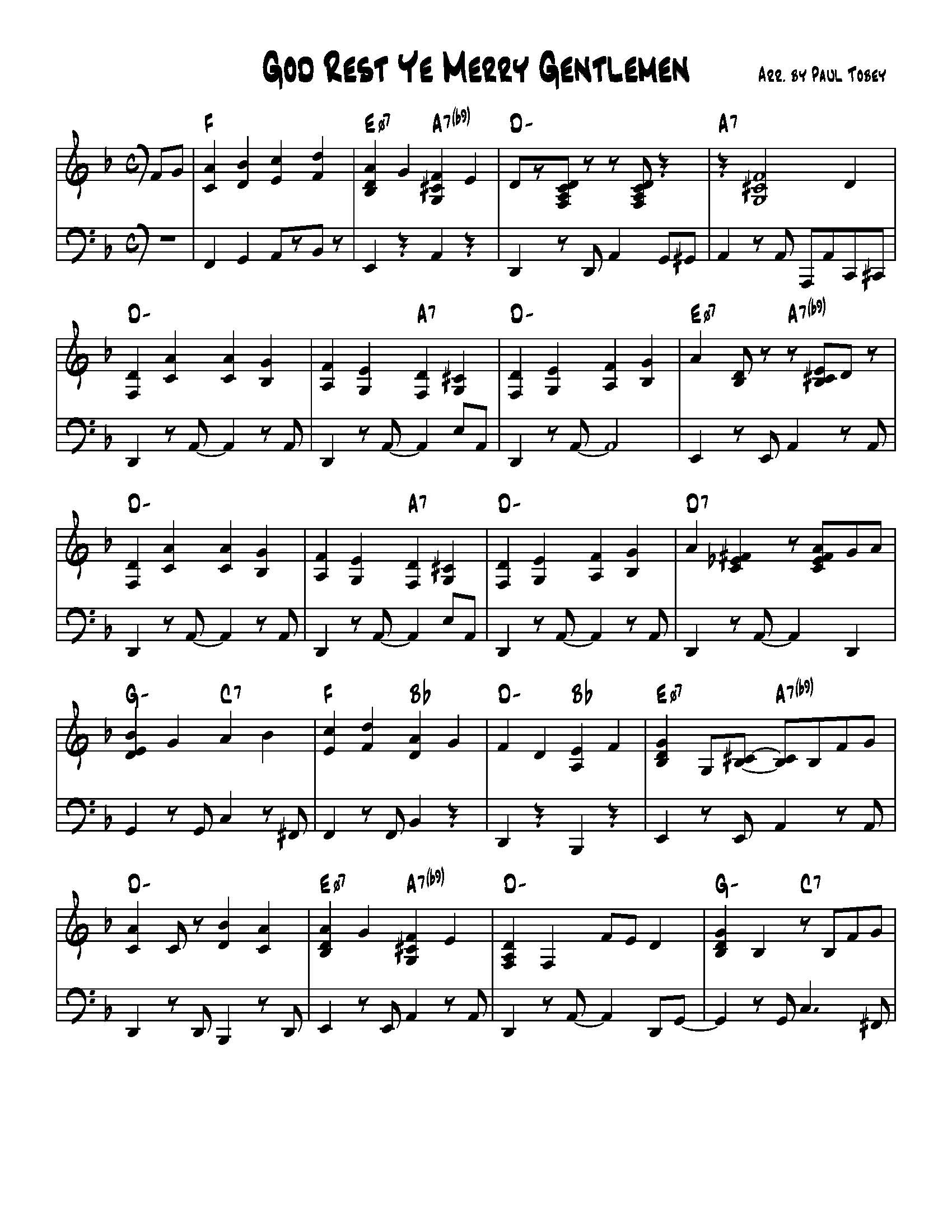

So many, at Christmas time, will never hear or see the true reason for this holiday which is Christ's birth. Thus, the true meaning of the song is "God make you mighty, gentlemen," which is a message for back then and a message for today. These original meanings would be clearer today with the addition of a modern comma. Then, there's the word "rest." The meaning back then was keep or make. For example, Robin Hood's merry men might be better understood as mighty men. Back in the Middle Ages, the word "merry" meant great and mighty. Each Christmas, we greet each other with the word merry, meaning happy. This song was popular with the people because of a very strong message - one we desperately need today. Soon, the waites, the night watchmen of that time, would be singing God Rest Ye Merry, Gentlemen as they walked the streets of London.Įven Charles Dickens would include the song in his classic A Christmas Carol. To overcome this problem, the people took the singing of Christmas songs to the streets of jolly old London town. When Christmas rolled around each year, songs of joy and happiness were not allowed in the church. The 15th century church sang only dark, somber songs usually written in Latin. With the changing of word meanings and difference in cultures, it is hard for Americans today to understand what the English peasants were singing about 500 years ago - unless you know the story behind the song. You have heard it said, "Things aren't always what they appear to be." Well, when we sing the Christmas carol, God Rest Ye Merry, Gentlemen, this saying is certainly true. It is when Jesus came down on earth, born in a manger, grew up as a carpenter and was laser focused on his mission - to destroy the works of the devil and to save mankind from sin. Merry is not Santa Clause and all things cute about Christmas Knowing the true meaning of Christmas is pretty much huge. Thus knowing the origin of the words would make our Christmas different. The sentence EAT, DRINK and BE MERRY was used during war times when soldiers would have to eat and drink because tomorrow they conquer. The nation of Great Britain was called "Merry Old England" - which was a powerful nation back then. The merry men were not some happy go lucky bunch but were men that King Richards fear. Examples would be Robin Hood's merry (mighty) men. In Old English the word merry could mean happy but it is also used in place of the word mighty. Wrong if you trace the real meaning of the word merry in old english. It is a song that depicts the gospel - Christ came, destroy the works of the devil and now we can rest and have comfort and joy - thus we say MERRY CHRISTMAS, right? One of the best loved Christmas music is the song "God rest ye merry, gentlemen." The lyrics are quite odd as we study it.

Thus every Christmas season also brings the circulation of apocryphal tales about how candy canes were created to symbolize Jesus, and how persecuted Catholics secretly encoded tenets of their faith into the song " The Twelve Days of Christmas."Īnother example in the latter vein is the claim that the Christmas carol "God Rest Ye Merry Gentlemen" originated in the 15th century as a reaction to the "dark, somber songs usually written in Latin" of the time, and that its title phrase would more meaningfully be rendered in modern English as "God make you mighty, gentlemen": In recent years every Christmas season has been accompanied a number of stories about the so-called "War on Christmas," a term which refers to supposed efforts by government, businesses, and non-religious groups and organizations to disassociate the celebration of Christmas from Christianity and instead focus on its secular aspects (or to replace the celebration of Christmas with a generic winter "holiday").Īlthough it is much less common and it doesn't have a catchy name, the reverse phenomenon also occurs: attempts are made by Christians to infuse secular elements of Christmas with religious symbolism and meaning they did not originally possess.


 0 kommentar(er)
0 kommentar(er)
